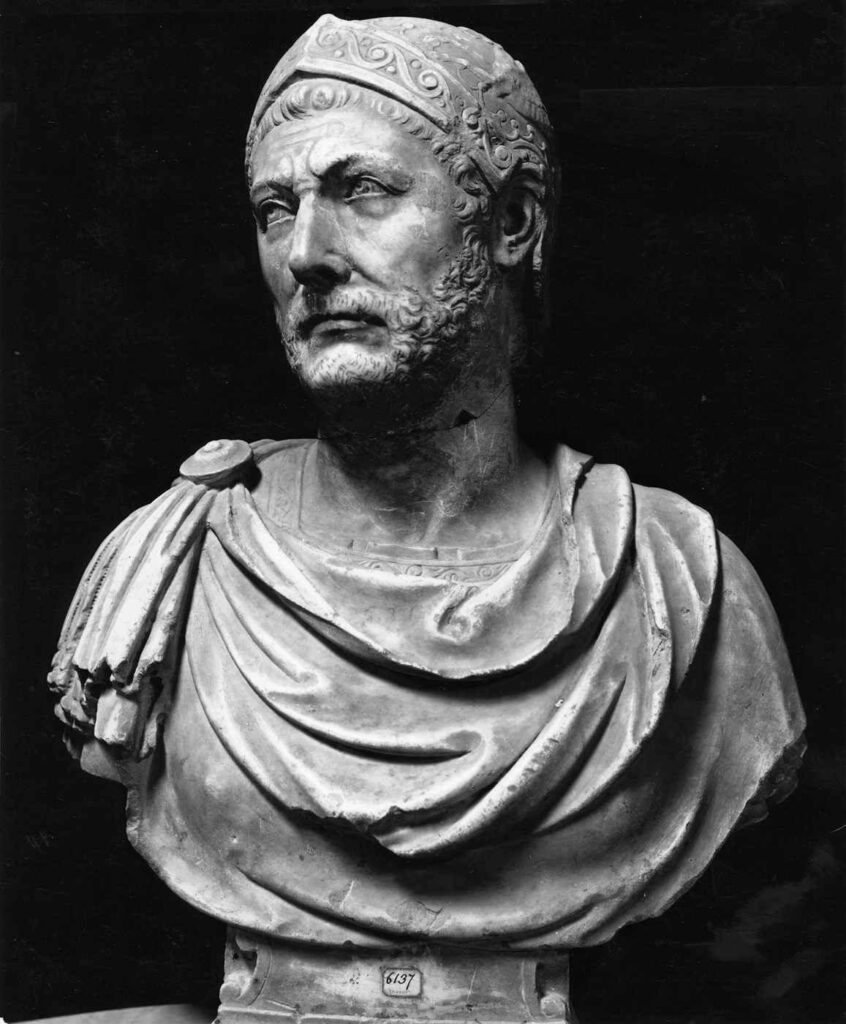The best way to motivate people is not through reason but by aiming at their emotions.
Since people by default have their defense mechanisms up, they will see a leader who stands up to give an eloquent speech as manipulative.
Instead take a page from Hannibal’s book – first lower their defences through entertainment or other means to bond the group emotionally.
Once you do that, you may direct them as you wish.
Hannibal’s Man Management
In 218 B.C. the famed general Hannibal of Carthage embarked on a feat never done before in history: he march an army from Spain, through the Alps, then into Northern Italy.
His goal: finally conquer and defeat the hated Romans on their own territory and end their hopes of expansion.
Despite the tremendousness of this feat, not only did the Carthaginians succeed, they managed to catch the Romans off guard.
But the costs were just as tremendous: out of the 102,000 that set out only 26,000 remained.
What’s more, there was no time to rest, for a Roman army was on its way.
To lift morale Hannibal came up with a simple but gruesome solution.
He gathered his prisoners and organized a gladiatorial contest.
He made the rules simple – survive and the victor gets a place in the Carthaginian army.
The prisoners agreed and the soldiers were treated to bloody entertainment for hours on end which allowed them to rest their nerves.
With the fighting over, Hannibal rose to address his men.
He explained that the fighting had been enjoyable because the prisoners fought so intensely.
That the weakest man, when faced with death, grows fierce, and that with the chance to join the great Carthaginian army, they could go from prisoners to free soldiers partaking in this great cause against the hated Romans.

You soldiers, said Hannibal, are in a similar position.
You face a stronger enemy and are not just miles but a whole sea away from home; in a way, you are prisoners too.
And just like the prisoners, you too will have to choose between freedom and slavery, victory and death.
However, just like those who succeeded in the contest, you too will succeed.
The speech took hold of their hearts, and the next day they defeated the oncoming army.
Not only that there came a string of victories over the mighty Roman legions.
Nearly two years later, the Carthaginians met a Roman army at Cannae, which heavily outnumbered them.
As they fearfully observed the enemy arrayed out in front of them, an officer named Gisgo rode out and, drawing near to Hannibal, remarked about the enemy numbers with a tremble in his voice.
“There is one thing, Gisgo, you have not noticed,” replied Hannibal: “In all that great number of men opposite, there is not a single one whose name is Gisgo.”
Gisgo let out a great laugh, and so did the men lined up behind them.
A simple joke broke the tension; indeed, the Romans did not have a Gisgo.
To joke around in such a testy situation meant that Hannibal was a supremely confident leader.
Somehow, in one moment he swept away their doubts and filled them with self-assurance.
On that day at Cannae, his Carthaginians dealt the Romans one of the most devastating defeats in history.
Analysis
Hannibal was a master of motivation, the sort that is rare to find.
Most generals in his position would attempt to hit their men with a speech, but this is not the way.
A speech only hits the surface of the soldier, and once faced with the reality of the situation it is immediately forgotten.
A leader should not merely depend on a speech, rather he must aim at their hearts, make their blood boil, and alter their mood.
Hannibal had a knack for this.
He would find a way of indirectly calming the emotions of his men (a joke or some entertainment) and only then incite them with a speech which brought the message home.
In fact at Cannae, a simple joke had the same effect; it was filled with meaning, and it bonded the men – no need for a speech.
He understood that a change in the mood of his men was the difference between victory or defeat.
Footnotes & Further Reading
Greene, Robert. The 33 Strategies of War. Millionaire, 2006


